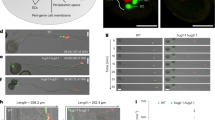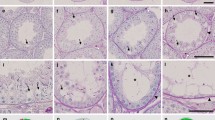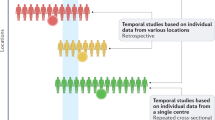Abstract
THE spermatheca is stated to be absent, by Patton and Cragg1, in the Anoplura, Pediculus humanus, and also by Florence2 in Hæmatopinus suis. But Keilin and Nuttall3 indicate the existence of a spermatheca in their figure of the reproductive system of P. humanus. Qadri4 disputes this finding and points out that a spermatheca is also absent in Hæmatopinus tuberculatus.
This is a preview of subscription content, access via your institution
Access options
Subscribe to this journal
Receive 51 print issues and online access
$199.00 per year
only $3.90 per issue
Buy this article
- Purchase on SpringerLink
- Instant access to the full article PDF.
USD 39.95
Prices may be subject to local taxes which are calculated during checkout
Similar content being viewed by others
References
Patton, W. S., and Cragg, F. W., “Text-book of Medical Entomology” (1913).
Florence, L., Cornell Agr. Expt. Sta. Mem., 707 (1921).
Keilin, D., and Nuttall, G. H. F., Parasit., 22, 475 (1930).
Qadri, M. A. H., Aligarh Muslim Univ. Pub. (Zoo.), No. 1, 18 (1948).
Mjöberg, E., Arkiv. Zool., 6, 255 (1910).
Ferris, G. F., Stanford University, Series 2 (5), 67 (1932).
Wigglesworth, V. B., “The Principles of Insect Physiology”, 385 (1924).
Author information
Authors and Affiliations
Rights and permissions
About this article
Cite this article
MUKERJI, D., SARMA, P. Spermatheca in Sucking Louse. Nature 168, 612 (1951). https://doi.org/10.1038/168612a0
Issue date:
DOI: https://doi.org/10.1038/168612a0



